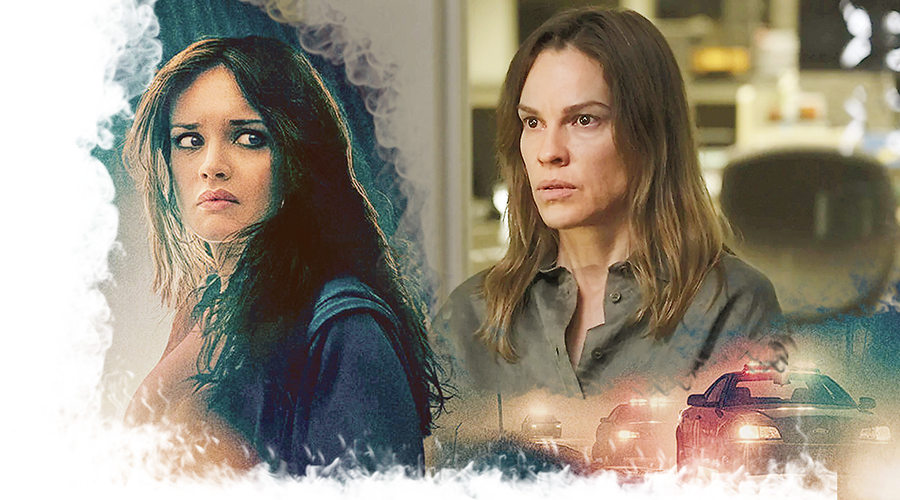Perfect Days
- 04 May - 10 May, 2024

A movie like "The Good Mother" can be based on a real event. This depressing story takes place in Albany, New York, a Rust Belt city, in the year 2016. This is hardly the most exciting setting, especially for a murder mystery that centres on the opioid crisis. The fact that Hilary Swank's portrayal of our main character, Marissa Bennings, is a journalist who works for the Albany Times-Union raises the possibility that the movie is based on real reporting. (It isn't.) When the great bombshell finally materialises, though, these specifics are seen for what they truly are: believable window dressing on an astonishing plot.
That isn't "incredible" in the sense of "too amazing to believe," but rather "too ludicrous to be believed." As Marissa awakens one morning on her couch with a half-empty bottle on the coffee table in front of her, "The Good Mother" gets off to a depressingly realistic start. She arrives at work grouchy and hungover – apparently her default mode – and her son Toby (Jack Reynor) interrupts a staff meeting to break the bad news that her second son, Michael, has passed away.
Michael, who alienated his family in the years before his death due to his escalating heroin addiction, hasn't been heard from in months. He was slain by a bullet fired by an unidentified assailant during a late-night drive-by shooting, not drugs. Toby believes Ducky (Hopper Penn), Michael's best friend with whom he had dubious ties, drew the trigger. However, Marissa senses that this situation is more complicated than just a strained friendship and a botched drug trade.
The same goes for Michael's girlfriend Paige (Olivia Cooke), who is now expecting a child and alone herself, with the exception of Marissa, who reluctantly accepts Paige's presence in her life after jabbing her in the jaw at the burial. The most captivating portion of the movie is the shaky friendship between Marissa and Paige, who don't particularly like one another but are connected by their love for Michael. Compared to their collaborative inquiry into Michael's death, which falters and spins before losing all impetus, it is more engaging. "The Good Mother" has already moved on by the time we learn what actually transpired to him.
The first of several storyline changes that send "The Good Mother" on a tawdry new course to an unsatisfying finale occurs at this point, roughly an hour into the movie. Naturally, it would be impolite to mention them here, but they transform the story from convincingly grim to cliched and absurd. The realistically detailed setting that director Miles Joris-Peyrafitte works so hard to create in the first two thirds of the movie is rendered ineffective by these twists. If you're only going to forsake reality halfway through, why bother filming drone video of smoky highway overpasses and employing Larry Fessenden to portray a grief counsellor?
This struggle serves as a metaphor for Joris-Peyrafitte's scattershot approach to filmmaking, which is more concerned with flashy camerawork—some of which is actually quite striking—than it is with treating his characters and their surroundings with respect. "The Good Mother" has a few isolated, successful performance moments, but they are also dropped. Consider Karen Aldridge's powerful monologue in a minor and thankless role as a participant in the aforementioned sorrow circle: She pours her heart out, advances Swank to the next plot point, and then disappears without a trace. Swank is particularly one-note, but Cooke and Reynor also don't have much of a chance to develop their characters before the end of the story. We never even find out who the “Good Mother” is, although several women in this movie could potentially take the title. In fact, reality is frequently painfully hazy and unresolved, and "The Good Mother" would have merited praise if it had adhered to this notion, albeit reluctantly. "The Good Mother" now begins with a gunshot and concludes with a whimper.
COMMENTS